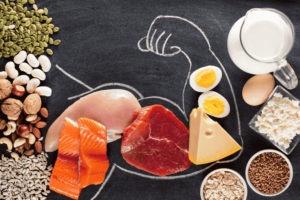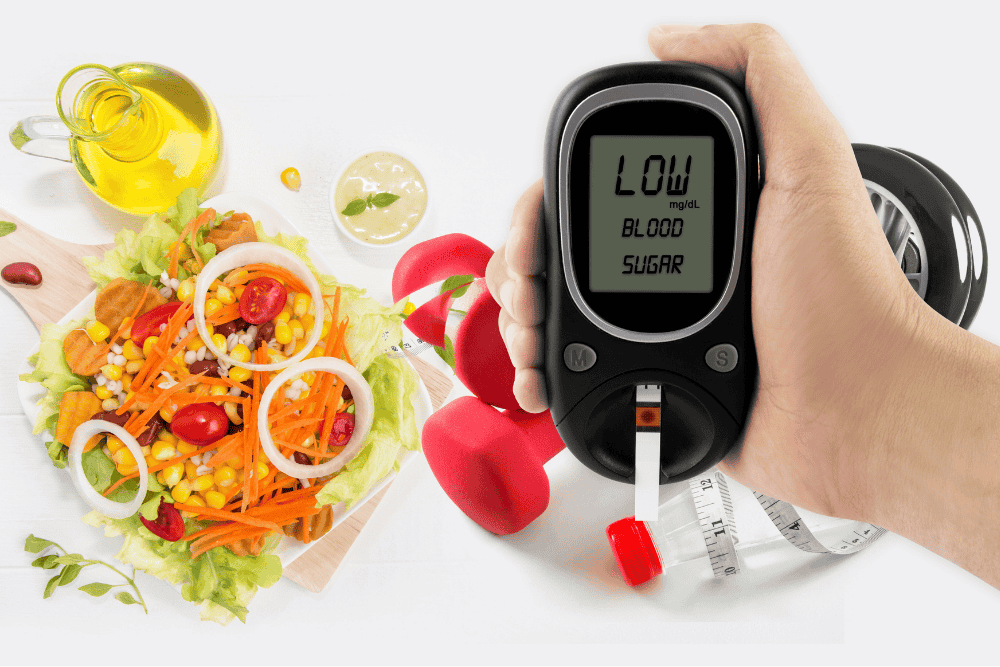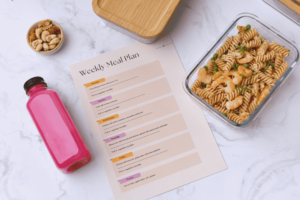

Best Diet for Diabetics: Tips to Maintain Healthy Blood Sugar Levels
How Can a Healthy Diet Affect Diabetes?
A proper diet for diabetics is one of the most crucial factors in maintaining stable blood sugar levels and reducing health risks associated with diabetes. Following a balanced diet can improve insulin sensitivity, support overall health, and prevent sharp glucose fluctuations. In this article, we’ll explain the science behind an ideal diabetic diet, which foods to include or avoid, and practical tips to keep blood sugar levels within the normal range.
What Is a Diabetic Diet?
A diabetic diet focuses on eating foods that stabilize blood sugar levels while avoiding those that cause sharp spikes in glucose. This diet emphasizes a balance between carbohydrates, proteins, and fats, with a strong focus on food quality — not just quantity.
Importance of Making a Specific Diet for Diabetics
- Controls blood sugar levels
- Improves insulin response
- Reduces the risk of diabetes complications (e.g. heart and kidney disease)
- Supports weight loss or healthy weight maintenance
- Boosts energy and general well-being
For more healthy eating tips, check out our article on the healthy diet guide for maintaining full-body wellness.
Key Components of a Diabetic-Friendly Diet
Healthy Carbohydrates
Carbs directly impact blood sugar, so it’s important to choose complex, high-fiber options such as:
- Whole grains like oats, quinoa, and brown rice
- Legumes like lentils, beans, and chickpeas
- Non-starchy vegetables like broccoli, spinach, and cucumber
- Fresh fruits in moderation, such as berries and apples
Looking to build muscle? Read our article on the best bulking diet.
Healthy Proteins
Proteins help promote satiety and preserve muscle mass. Good sources include:
- Fish like salmon and tuna
- Skinless poultry
- Eggs
- Legumes and nuts in moderation
Learn more in our article about the benefits of protein for muscle building.
Healthy Fats
Good fats enhance insulin sensitivity and reduce inflammation. Healthy sources include:
- Olive oil and avocado oil
- Nuts like almonds and walnuts
- Fatty fish rich in omega-3
Dietary Fiber
Fiber helps regulate blood sugar and supports digestion. Rich sources include:
- Leafy green vegetables
- Low-sugar fruits
- Whole grains
Foods to Avoid on a Diabetic Diet
To avoid blood sugar spikes, limit or avoid:
- Sugary drinks like soda and packaged juices
- Sweets and pastries high in sugar
- Processed foods and fast food
- Excessive trans and saturated fats
Tips to Maintain Stable Blood Sugar Levels
Portion Control
Eating small, frequent meals helps prevent blood sugar highs and lows.
Eat Regularly
Skipping meals can lead to unstable blood sugar — aim for consistent meal times.
Stay Active
Physical activity boosts insulin sensitivity and improves cardiovascular health.
For women looking to lose weight quickly and safely, check out our guide on rapid belly fat loss.
Drink Plenty of Water
Water supports metabolism and prevents dehydration, which can impact blood sugar.
Monitor Blood Sugar Levels
Regular glucose monitoring helps track how different foods affect your levels and fine-tune your diet.
Frequently Asked Questions About Diet for Diabetics
Can diabetics eat fruit?
Yes — in moderation. Choose low-sugar fruits like berries and green apples.
What are the best carb sources for diabetics?
Whole grains, legumes, and non-starchy vegetables are top choices.
Can diabetics eat high-protein foods?
Yes, protein promotes fullness and doesn’t spike blood sugar.
What are the best drinks for diabetics?
Water, unsweetened green tea, and black coffee without added sugars are excellent options.
Do all fats need to be avoided?
No — healthy fats like olive oil and nuts are beneficial and improve insulin sensitivity.
How should diabetics plan daily meals?
Distribute meals evenly and include a mix of protein, healthy carbs, and good fats in each one.
Conclusion
Following a proper diabetic diet is essential for managing blood sugar and improving overall health. By choosing the right foods, controlling portions, and staying physically active, people with diabetes can take control of their condition more effectively.


